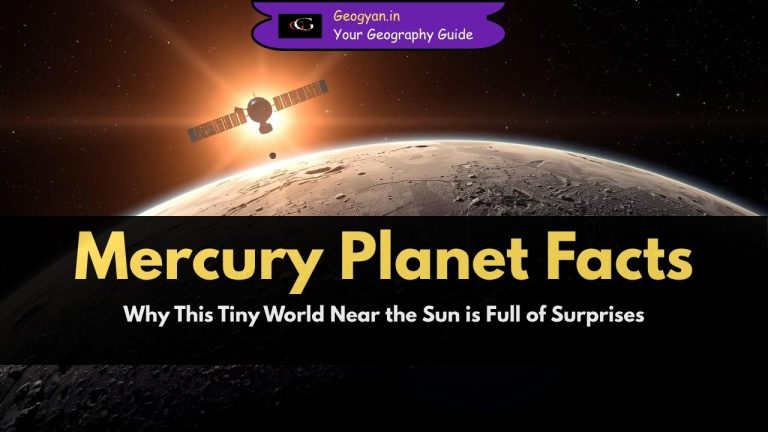Estimated reading time: 4 minutes
Table of contents
Introduction
Welcome to the fascinating world of geography, where the study of our planet’s landscapes, environments, and human societies opens doors to endless possibilities. In today’s rapidly evolving world, geography plays a pivotal role in addressing pressing global challenges like climate change, urbanization, and sustainability.
In this blog post, we’ll delve into the exciting and diverse career opportunities awaiting geography students, showcasing the versatility of their degrees and the impact they can make in various industries.
The Versatility of Geography Degrees
Geography degrees equip students with a wide range of skills, making them adaptable and valuable in the job market. The interdisciplinary nature of geography allows graduates to connect and integrate knowledge from different fields, making them well-rounded professionals.
For instance, a geography student learns to analyze spatial data, interpret maps, understand human-environment interactions, and develop a critical understanding of global issues. These skills are highly sought after in today’s data-driven and interconnected world.
Career Paths for Geography Graduates
Environmental Consulting
Geography graduates can contribute to environmental consulting firms, working on projects related to sustainability and conservation. They may be involved in conducting environmental impact assessments for development projects or advising organizations on eco-friendly practices.
For example, a geography expert may help a company analyze the ecological impact of a new industrial site and suggest ways to minimize its carbon footprint.
Urban Planning and Development
Urban planners with a background in geography play a crucial role in designing cities that are efficient, sustainable, and livable. They analyze geographic data to make informed decisions about zoning, transportation systems, and land use.
A geography student turned urban planner may work on creating a master plan for a city, ensuring that it accommodates the needs of its growing population while preserving its natural heritage.
Geographic Information Systems (GIS) Analyst
GIS analysts use advanced technologies to collect, manage, and analyze geographic data. They work across diverse sectors, such as healthcare, transportation, disaster management, and marketing.
For instance, a geography graduate working as a GIS analyst for a transportation company might optimize delivery routes based on real-time traffic data, reducing costs and improving efficiency.
Climatology and Meteorology
Geography students with an interest in weather patterns and climate change can pursue careers in climatology and meteorology. They may work as weather forecasters, climate researchers, or environmental consultants.
For example, a geography enthusiast might study the impact of climate change on a specific region, helping communities prepare for extreme weather events.
Cartography and Geospatial Intelligence
Cartographers create accurate and visually appealing maps for various purposes, including navigation, exploration, and military operations. Geospatial intelligence experts use geographic data to support national security and defense efforts.
A geography graduate working in this field might develop precise maps for a disaster response team, enabling them to efficiently coordinate rescue operations.
International Development and NGOs
Geography graduates can make a significant difference by contributing to international development projects and working with NGOs. They may tackle issues like poverty, food security, and sustainable development.
For instance, a geography student might collaborate with a humanitarian organization to implement a clean water initiative in a remote area, improving the lives of the local community.
Geographic Education and Research
Passionate about sharing knowledge? Geography graduates can become educators or researchers, advancing geographical understanding and inspiring the next generation.
A geography professor might conduct research on the impact of human activities on natural ecosystems, fostering a deeper understanding of environmental issues.
Key Skills and Qualifications
To excel in geography careers, students should cultivate essential skills like analytical and critical thinking, spatial reasoning, technological proficiency with GIS tools, and effective communication. These skills will enable them to tackle complex problems and contribute to meaningful projects in their chosen fields.
Internship and Networking Opportunities
Internships provide invaluable real-world experience and networking opportunities for aspiring geography professionals. Students are encouraged to seek internships with organizations aligned with their career goals. Additionally, joining professional geography associations and attending conferences allows them to connect with industry experts and stay updated on the latest developments in the field.
Overcoming Challenges in Geography Careers
While some may have misconceptions about limited job prospects for geography graduates, countless success stories demonstrate otherwise. By leveraging their skills and passion, geography students can carve out fulfilling and impactful careers. Patience, persistence, and a willingness to embrace new challenges are key to overcoming any obstacles along the way.
Conclusion
Geography students are equipped with a powerful set of skills and knowledge that enable them to make a positive impact on the world. From environmental consulting and urban planning to GIS analysis and international development, the career opportunities for geography graduates are vast and diverse.
Embracing their passion and skills, geography students can embark on exciting journeys of discovery, exploration, and meaningful contribution to society and our planet’s well-being. So, if you have a passion for exploring and understanding the world around you, consider a career in geography – the possibilities are limitless!
You May Also Like




























